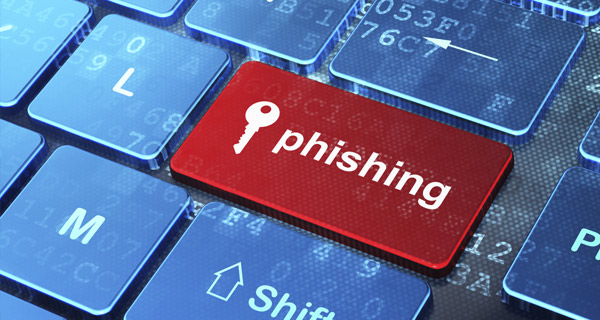Zoosk Frauds

- Zoosk Frauds &
- Can You Get Your Money Back From Zoosk
- Zoosk Scam Report
- Zoosk Frauds Account
- Zoosk Fraud Charges
- Zoosk Frauds Photos
A 60-year-old PR consultant has said she was duped by a con artist on Zoosk. Steve Bustin, from Brighton, has had social media photos stolen by scammers. His photos have been used to trick women.
By this point, anybody who’s been single in the last five years has tried online dating, which is great for people who are actually trying to meet somebody online. But with the recent spike in popularity, scammers are also trying to get in on the fun and they’re getting good at it.
- Yes, Zoosk is a Legit Dating Site With Over 38 Million Users. A dating site is only as good as its membership, and Zoosk boasts having millions of singles in a worldwide dating network. This highly respected dating platform has more than 38 million members flirting online. You can mingle with them, sending winks, virtual gifts, and messages.
- Zoosk is a scam I made an account and found a friend from school in their, and it said they messaged me, apparently they didn't and zoosk was lying to get money. I looked into it and more people are having this problem!
Scammers come in all shapes, sizes, and locations and they’re everywhere on dating apps and websites, so it’s important to know what to look out for. Remember that they’re always looking for a way to profit from you, so if you think there’s an angle for them to make money you should end contact and report them immediately.
These are some of the current most popular online dating scams you’ll want to watch out for.
The Hard Come-on
You start chatting, and they tell you they like you. A lot. Within the first twenty minutes of chatting, they’ve already made sultry declarations of passionate love and are urging you to get off the app and message them over email or a private messaging service, like Whatsapp, Facebook Messenger, or Line.
Soon, they’ll try to initiate a date, but they’ll cancel at the last minute with an excuse that seems almost probable. They got called abroad for a last minute business trip or their mother got sick and needs medical attention. They reschedule. Moments before your next date, they cancel again. Something outlandish, but still remotely plausible. Then, another outlandish situation, but this time they need money. Something to help cover medical bills for their mother, or they left their wallet on the train. Don’t give them money.
These hard come-on scams are one of the most common ways that scammers will try to work you for your money. Besides plain intuition, there are a few other telltale signs online dating scammers give off. One, they can never meet up. I don’t mean that they don’t meet up often. I mean you’ve literally never met them. Second, look out for typos or, if they call, a possible foreign accent. Many scammers live abroad, so it’s important to look for fault in their speech fluency. Third, they look to move chatting off the dating app or site very quickly. Dating sites monitor interactions very closely to catch scammers, so scammers are incentivized to get to chatting off the dating sites as quick as possible in case their accounts get banned. While none of these things are surefire proof that your match is a scammer, one or more of these signs taken in context should help you figure things out pretty quickly.
The Bot
A dating scam bot is a computer code script that constructs fake profiles, matches with real users, and sends generated messages designed to trick you into divulging financial information. Usually, within minutes of starting a conversation, a bot profile will try to redirect you to a sketchy site outside of the dating app. The shady website will either try to trick you into entering credit card or bank account information or install malware onto your computer or mobile device that will try to harvest your private information.
Because the bot isn’t a human operator, typically, these are some of the easiest types of scams to spot. Bot scams usually have photos that are pulled from the internet and that often aren’t even of the same people. Low resolution images are another dead giveaway. Oftentimes, a quick google image search will show you whether or not the person you’re chatting with is who they say they are. Next, evaluate the conversation. Bots will almost always start the conversation first, and have canned call and response lines. If you see that their answers or questions don’t apply or completely ignore what you wrote, report them immediately and break off contact.
The Spammer
The spammer usually operates identically to the bot, except the profile is manned by a person.
The chief way to tell if you’re dealing with a spammer is that they’ll try to direct you off the dating site or app to a spam website that asks you to enter financial information. These alternative websites may pose as messaging services or offer some other subscription-based service. Don’t be fooled: these are ploys to harvest credit card information which will then be used for making fraudulent charges.
The Too Good to Be True
The last type of scammer usually poses as an attractive young man or woman to prey on someone older. These types of scams use a profile of an attractive person as a facade to get vulnerable users to either divulge credit card information or purchase expensive gifts. The scammers then commit credit card fraud or sell the gifts upon receipt, similar to the last two methods.
To catch these types of scammers take a close look at their profiles. You don’t have to lack confidence to know there’s something odd about an attractive person 15 or 20 years your junior fawning over you based on your profile. Do a quick google image search of their photos and see if they turn up elsewhere. If they do, they’re likely a scammer. If they flatter you nonstop, they’re probably a scammer. If they start requesting gifts or credit card information, you guessed it, they’re probably a scammer.
Make no mistake: the popularity of online dating is good for singles everywhere… but there will always be people out there looking to spoil the fun. The best way to prevent getting scammed is simple—don’t hand out money, no matter the circumstance. If you follow those two simple rules and trust your gut, you’ll be safe almost every time.
To learn more about scammers and how to spot them, check out out these real-life examples of things online dating romance scammers say to trick you and download this free online dating scammers guide.
Zoosk Frauds &

Subscribe to our newsletter
By clicking Submit you agree to Zoosk’s terms of use and privacy policy.

According a recent Pew Research study, online dating has lost much of the stigma it once had. In fact, the majority of Americans describe online dating as a good way to meet people. That’s great news for those of us who are looking for someone serious and want help finding the right person. However, there’s a drawback to online dating’s growing popularity. As it becomes more popular and mainstream, it becomes a larger target for scammers, catfishers, and con-artists. So just who are these people and how do you avoid them and other online dating scams?
We talked to Laurie Davis, CEO and Founder of eFlirt and author of Love @ First Click, for her tips on how to spot online dating scams.
They Will Be Otherworldly Attractive
If you haven’t heard of catfishing, it’s when people make up an online identity to trick you into getting romantically involved. You know the saying if it’s too good to be true, it probably is? Well, that pretty much sums up catfishing in its entirety, including the looks of your potential match. “You cannot tell from a profile alone if you’re being catfished, however, the trend we have noticed is that catfishing usually happens from accounts who are incredibly attractive,” says Davis. So if your match looks a little too perfect in every single photo, you might want to ask the person to take a new photo holding up a unique object. Those who refuse may not be on the up-and-up.
They’re Terrible Spellers
Not everyone has a degree in English Lit, however many scammers will consistently use incorrect grammar and spelling because they’re from a foreign country and are portraying themselves as locals. “If it is a scammer, oftentimes English isn’t their first language so look for any inconsistencies in grammar and spelling, or the use of language that is overly emotional for a profile,” says Davis. “That is one of the biggest red flags.”
They Don’t Ask Simple Questions
When it comes to communicating, those who catfish really like to wax poetic and are extremely formal and flowery with their language. “They wouldn’t say something like, ‘how’s your day going?’ Instead, they might write, “Beautiful Amelia, I do so hope your day is wondrous,’” says Davis. “The more specific you can be with your questions to them, the better. Most won’t have a clear sense of lifestyle and will continue to bring it back to what they want in a match.”
They Want to Get Serious Too Soon
Be cautious whenever someone is rushing things online. Not only will a scam artist make the first move with you, but they’ll also conveniently match your requirements to a tee while playing with your sympathy and striking when you are the most vulnerable. “Scammers try to emotionally connect via email so you feel like you’re in a relationship with them before meeting,” says Davis. “If the person seems to paint a picture of what it would be like to be together, delete their messages. You haven’t even met yet!”
Can You Get Your Money Back From Zoosk
Other Red Flags to Look Out For
According to Davis, if any of the following situations occur, chances are your being contacted by a spammer and should cut communication ASAP:
– Suggesting that you continue communicating through an email address rather than messaging on the site
Zoosk Scam Report
– Sending many emails to you a day, and long messages
– Keeping the focus of the messages on what your life could be like as a couple versus the reality of what your lives are like now
Zoosk Frauds Account
– Dodging your dates and/or refusing to talk on the phone or skype
– Asking for money
Zoosk Fraud Charges
Dating can be fun and exciting. And it should be! However, it’s important to know how to safely meet and interact with new people. Remember that people aren’t always what they seem. If you suspect that someone you’re talking to may be a scammer, stop your communications and immediately report him or her to the site or app you’re using. Don’t let your excitement cloud your good judgement.
Subscribe to our newsletter
Zoosk Frauds Photos
By clicking Submit you agree to Zoosk’s terms of use and privacy policy.